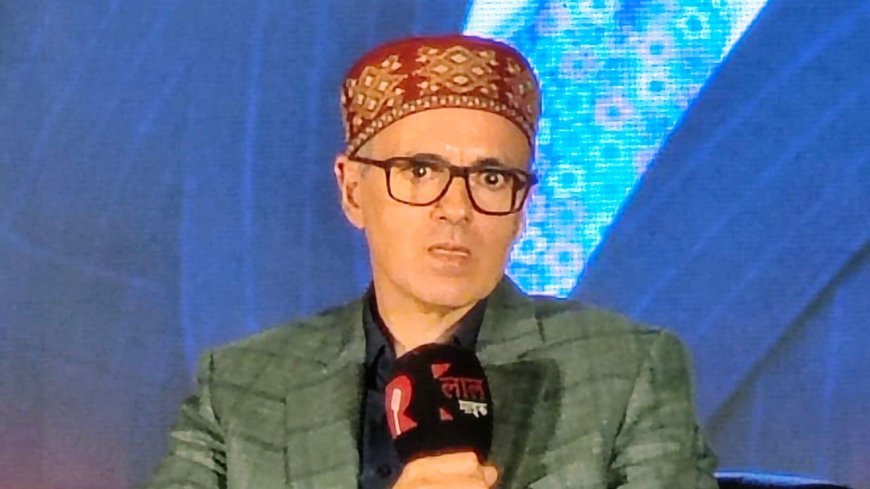‘Normalcy in Jammu and Kashmir post Article 370 abrogation is forced, not organic,’ says CM Omar Abdullah
Chief Minister Omar Abdullah argues that the security situation in Jammu and Kashmir is still precarious, despite claims of normalcy. He highlights the need for CRPF protection for Mirwaiz Umar Farooq as evidence of underlying tensions that suggest a 'forced normalcy' rather than genuine peace.

‘Normalcy in Jammu and Kashmir Post Article 370 Abrogation is Forced, Not Organic,’ Says CM Omar Abdullah
News by dharmyuddh.com
Introduction
The recent statement by Jammu and Kashmir's Chief Minister, Omar Abdullah, has ignited discussions regarding the region's status post Article 370 abrogation. Abdullah emphasizes that what has been portrayed as normalcy in Jammu and Kashmir is not an organic development but rather a forced scenario driven by governmental actions and strategic policies.
Context of Article 370 Abrogation
Article 370, which granted special autonomy to the Jammu and Kashmir region, was abrogated by the Indian government in August 2019. This decision led to significant changes in the political landscape of the region. Abdullah argues that the changes following this abrogation have not led to genuine normalization and peace, suggesting that the situation remains fragile and artificially maintained.
Omar Abdullah’s Concerns
According to Abdullah, the current environment in Jammu and Kashmir is characterized by a sense of duress, highlighting incidents of unrest and public discontent. He points out that while the government may claim that the region is experiencing peace, the realities on the ground tell a different story. Abdullah's statements reflect a broader concern regarding the human rights situation and the genuine feelings of the local populace.
Impact on Residents
The Chief Minister's comments raise critical questions about the everyday lives of the residents of Jammu and Kashmir. Many locals continue to face challenges related to security, freedom of expression, and civil liberties. Abdullah argues that a true return to normalcy requires addressing these fundamental issues rather than glossing over them with superficial measures.
Political Implications
This assertion by Omar Abdullah also carries significant political weight. It casts doubt on the legitimacy of the government's claims concerning stability in the region. By highlighting the disconnect between governmental narratives and the lived experiences of the people, Abdullah invites further scrutiny into the ongoing policies affecting Jammu and Kashmir.
Conclusion
Omar Abdullah’s remarks serve as a critical reminder that the situation in Jammu and Kashmir requires a nuanced understanding. As the region continues to navigate its complex identity and socio-political challenges, it is essential to consider voices from within to foster genuine progress and reconciliation. Only then can the visions of peace and stability materialize in a way that is truly organic and reflective of the people's sentiments.
For More Information
For more updates, visit dharmyuddh.com. Stay informed about the latest developments and insights on regional politics and policy discussions. Keywords: Jammu and Kashmir normalcy post Article 370, Omar Abdullah statement Article 370 abrogation, Article 370 impact on Jammu Kashmir, forced normalcy Jammu Kashmir, political implications Jammu Kashmir Article 370, resident concerns Jammu Kashmir government policies, human rights Jammu Kashmir situation, local populace sentiments Jammu Kashmir, Article 370 special autonomy discussions, Jammu and Kashmir peace and stability narrative.







